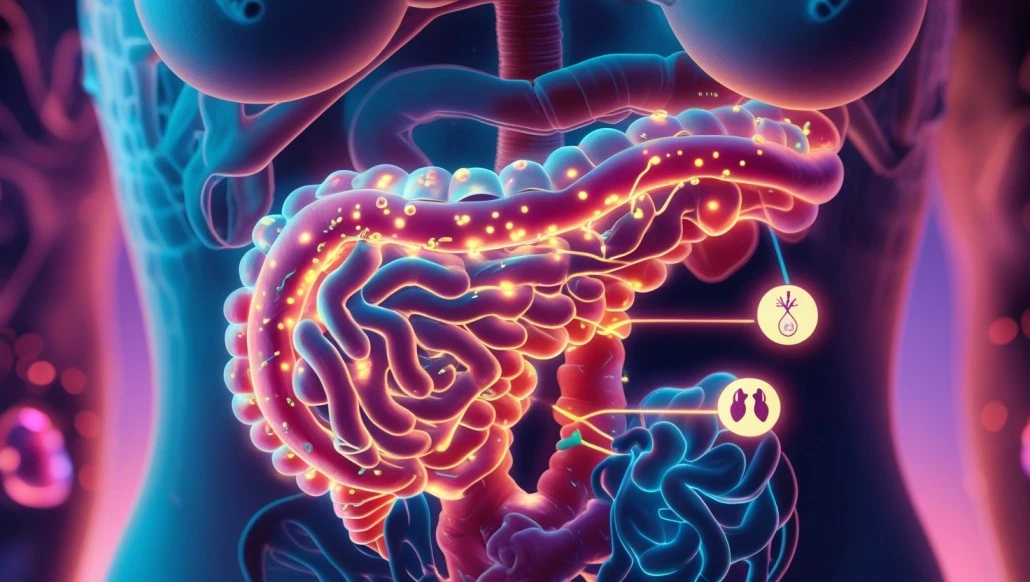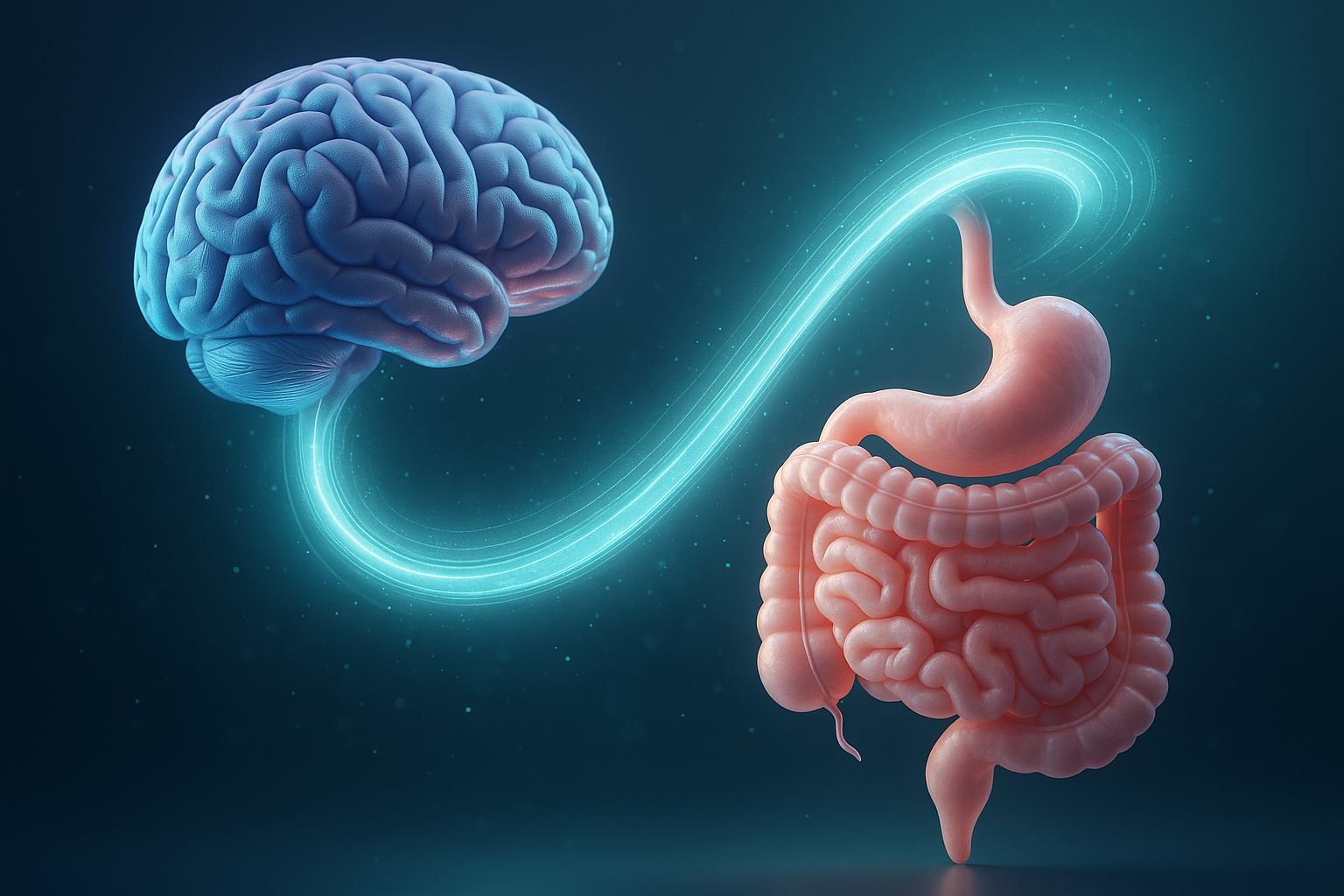Introduction: The Gut-Health Connection for Women Over 40

As women journey through their 40s and beyond, a new set of physiological shifts often comes into play. From the subtle whispers of perimenopause to the full symphony of menopause, our bodies undergo significant transformations.
While hot flashes and mood swings often take center stage, many women find themselves grappling with another, often overlooked, aspect of this transition: their gut health. Bloating, digestive discomfort, stubborn weight gain, and even exacerbated menopausal symptoms can all be intricately linked to the delicate balance within our digestive system.
If you’re nodding along, feeling seen and understood, you’re not alone. Millions of women are experiencing these very challenges. In my own journey through my 40s, I personally experienced the frustration of unexplained bloating and digestive sluggishness, which truly highlighted the critical role of gut health. The good news is, there’s a powerful, yet often misunderstood, ally emerging in the world of gut health: postbiotics.
What Exactly Are Postbiotics, and Why Are They Crucial for Women Over 40?

You’ve likely heard of probiotics (beneficial live bacteria) and prebiotics (the food that feeds them). But what about postbiotics? Think of postbiotics as the beneficial byproducts created when probiotics ferment prebiotics.
They are the non-living compounds ‒ like short-chain fatty acids (SCFAs), enzymes, and peptides ‒ that exert powerful health benefits in your body. Unlike live probiotics, postbiotics are stable, have a longer shelf life, and can be a game-changer for those with compromised immune systems or who experience digestive upset from live bacterial supplements.
For women over 40, the significance of postbiotics becomes even more pronounced. As we age, and particularly during perimenopause and menopause, hormonal fluctuations (especially declining estrogen) can directly impact the diversity and composition of our gut microbiome. This shift can lead to an increase in less beneficial bacteria and a decrease in the good guys, contributing to a range of uncomfortable symptoms. Postbiotics step in as direct messengers, offering a way to support gut health and overall well-being without relying solely on the presence of live bacteria.
The Power of Postbiotics: Targeting Women’s Unique Health Challenges
Postbiotics offer a multifaceted approach to improving health, particularly for women navigating the changes that come with age. Here’s how they can specifically address common concerns:
Alleviating Bloating and Digestive Discomfort (Postbiotics for Menopause Bloating)

Bloating is a common complaint among women over 40, often exacerbated by hormonal shifts and changes in gut flora. Postbiotics, especially those rich in short-chain fatty acids like butyrate, play a crucial role in:
- Maintaining the integrity of the gut lining
- Reducing inflammation
- Supporting healthy digestive function
A healthy gut lining acts as a barrier, preventing undigested food particles and toxins from entering the bloodstream, which can otherwise trigger bloating and discomfort. By fostering a more balanced gut environment, postbiotics can help calm an irritated digestive system and reduce the frequency and severity of bloating.
Supporting Menopause Symptom Management
Menopause brings a cascade of symptoms, and emerging research highlights the gut’s significant role in this transition. The gut microbiome influences estrogen metabolism through the ‘estrobolome,’ a collection of gut bacteria that modulate estrogen levels.
As estrogen declines during menopause, the balance of these bacteria can shift, potentially contributing to symptoms like:
- Hot flashes
- Mood swings
- Vaginal dryness
Studies suggest that certain postbiotics, derived from specific bacterial strains, may help to modulate the estrobolome, offering a novel approach to supporting hormonal balance and alleviating menopausal discomfort.
Aiding in Healthy Weight Management

Weight gain, particularly around the midsection, is another common challenge for women over 40. This can be influenced by:
- Hormonal changes
- Metabolism shifts
- Alterations in gut microbiota
Research indicates that postbiotics can positively impact metabolism, reduce inflammation associated with obesity, and even influence satiety signals. By promoting a healthier gut environment, postbiotics can help:
- Optimize nutrient absorption
- Regulate appetite
- Support a more efficient metabolism
This makes healthy weight management more attainable.
Boosting Immune System Function
As we age, our immune system can become less robust, making us more susceptible to illness. A significant portion of our immune system resides in the gut. Postbiotics contribute to a strong immune response by:
- Strengthening the gut barrier
- Reducing systemic inflammation
- Directly interacting with immune cells
This can translate to fewer sick days and a greater sense of vitality, which is especially important for women juggling multiple responsibilities.
Enhancing Mood and Mental Well-being (The Gut-Brain Connection After 40)

The gut-brain axis is a complex communication network that links our digestive system to our central nervous system. Emerging research suggests that a healthy gut microbiome can positively influence:
- Mood
- Stress reduction
- Cognitive function
Postbiotics, by promoting a balanced gut environment and reducing inflammation, can indirectly support mental well-being, offering a natural avenue for women over 40 to navigate mood fluctuations often associated with hormonal changes.
Actionable Advice: Integrating Postbiotics into Your Life
As a Certified Nutritionist specializing in women’s health, I believe in practical, sustainable changes. Here’s how you can harness the power of postbiotics:
Diet Tips: Fueling Your Gut for Postbiotic Production

While postbiotic supplements are available, the best way to encourage natural postbiotic production is by feeding your gut microbes the right foods. Focus on a diverse, whole-food diet rich in prebiotics and fiber:
- Fiber-Rich Fruits and Vegetables: Aim for a rainbow of produce. Berries, apples, bananas, leafy greens, asparagus, and garlic are excellent sources of prebiotic fiber that your gut bacteria love.
- Legumes and Whole Grains: Lentils, beans, chickpeas, oats, and barley provide complex carbohydrates and fiber that support a healthy microbiome.
- Resistant Starch: Cooked and cooled potatoes or rice, green bananas, and plantains contain resistant starch, which acts as a powerful prebiotic.
- Fermented Foods (in moderation): While fermented foods like kimchi, sauerkraut, and kefir contain probiotics, their fermentation process also produces postbiotics. Incorporate them regularly, but listen to your body.
Lifestyle Changes: Beyond the Plate
Your lifestyle significantly impacts your gut health and, consequently, postbiotic production:
- Stress Management: Chronic stress can negatively alter your gut microbiome. Practice mindfulness, meditation, yoga, or spend time in nature to reduce stress levels.
- Prioritize Sleep: Aim for 7-9 hours of quality sleep per night. Poor sleep can disrupt gut balance.
- Regular Physical Activity: Moderate exercise has been shown to increase gut microbial diversity and promote a healthier gut environment.
- Stay Hydrated: Water is essential for all bodily functions, including healthy digestion and nutrient absorption.
Supplement Suggestions: When to Consider a Boost (Best Postbiotic Supplements for Women Over 40)
While diet and lifestyle are foundational, postbiotic supplements can offer targeted support, especially for women over 40. Look for supplements that:
- Specify the Postbiotic Type: Different postbiotics have different benefits. For example, look for products containing tributyrin (a form of butyrate) for gut barrier support or specific heat-treated bacterial strains shown to have immunomodulatory effects.
- Are Third-Party Tested: This ensures purity, potency, and that the product contains what it claims.
- Are Formulated for Women’s Health: Some supplements are specifically designed to address hormonal shifts and gut issues common in women over 40.
Always consult with your healthcare provider before starting any new supplement regimen, especially if you have underlying health conditions or are taking medications.
Embrace Your Gut Health Journey
Navigating the changes that come with being a woman over 40 can feel overwhelming, but understanding the profound connection between your gut health and overall well-being can empower you to take control. Postbiotics offer a promising avenue to support your body through these transitions, addressing common concerns like bloating, menopausal symptoms, and weight management. By embracing a holistic approach that includes a nutrient-rich diet, mindful lifestyle choices, and strategic supplementation, you can cultivate a thriving gut microbiome and reclaim your vitality.
Remember, your journey to optimal gut health is unique. Listen to your body, be patient with yourself, and always partner with a trusted healthcare professional to create a personalized plan that best suits your needs. Here’s to a healthier, happier gut, and a more vibrant you!
Q: Does gut health affect menopause symptoms?
A: Absolutely! The gut microbiome plays a significant role in modulating estrogen levels through the estrobolome. An imbalanced gut can exacerbate menopausal symptoms like hot flashes, mood swings, and even bone density issues. Supporting gut health with postbiotics can help create a more favorable environment for hormonal balance during this transition.
Q: Can postbiotics help with weight gain during menopause?
A: Yes, they can. Postbiotics have been shown to influence metabolism, reduce inflammation, and impact satiety signals. By promoting a healthier gut environment, postbiotics can support healthy weight management, especially when combined with a balanced diet and regular exercise.
Q: Are postbiotics safe for long-term use?
A: Generally, yes. Unlike live probiotics, postbiotics are non-living compounds, making them very stable and less likely to cause digestive upset in sensitive individuals. However, it’s always best to consult with your healthcare provider before starting any new supplement, especially for long-term use, to ensure it’s appropriate for your individual health needs.
Q: How quickly can I expect to see results from taking postbiotics?
A: The timeline for seeing results can vary depending on individual factors, the specific postbiotic product, and the severity of your symptoms. Some individuals may notice improvements in digestive comfort within a few weeks, while others may require a longer period to experience significant changes. Consistency in diet, lifestyle, and supplement intake is key.
Q: Where can I find reliable information on postbiotics?
A: When seeking information, always prioritize credible sources. Look for research published in peer-reviewed journals, and information from reputable health organizations, universities, and government agencies. Examples include the National Institutes of Health (NIH), Mayo Clinic, Harvard Health, and academic research institutions. Be wary of anecdotal evidence or sources that make exaggerated claims without scientific backing.